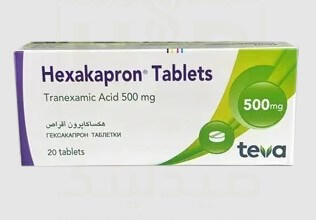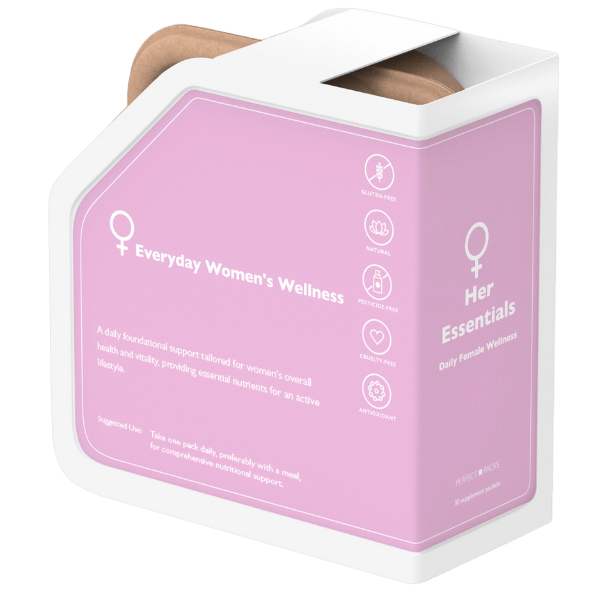Lysteda / Hexakapron (generic name: tranexamic acid) is a drug that slows down the breakup of clots in the blood. By acting as an antihemorrhagic, it can prevent prolonged bleeding, especially for women during menstruation. It can be prescribed to stop heavy nose bleeds
Lysteda can also be prescribed when there is a risk of heavy bleeding, such as during dental surgery or when there is bleeding from trauma. In such cases, it will be prescribed in ampoules for injection by a healthcare professional.
Dosage
The doctor will determine the appropriate dosage and treatment regimen. Lysteda tablets can be taken with water, with or without food. Where necessary, a tablet can be halved on the score line.
Storage
Protect Lysteda against light and moisture by storing it in a dry place, below 25°C / 77°F, and in the original container. Keep the medication away from children and pets.
Q&A
What is the difference between a coagulant and an anticoagulant?
Coagulation is a complex process by which clots are formed. A coagulant is an agent that promotes the clotting of blood. An anticoagulant such as Lysteda stops blood clots from forming, either by reducing fibrin formation so that clots cannot form in the first place, or by dissolving clots.
When do doctors use antifibrinolytics?
Antifibrinolytic drug therapy such as
Lysteda can be used for the treatment of intraoperative bleeding, particularly in cardiac surgery, spinal surgery, liver transplantation, and orthopedic surgery. It can also be used for non-surgical therapy, such as to prevent heavy beeding during menstruation, or nose bleeds.
In what cases is tranexamic prescribed in ampoules rather than tablets?
Tranexamic acid is available in oral tablets and intravenous (IV) ampoules. The main uses of tranexamic acid ampoules are for patients who have suffered significant trauma, such as from a car accident or severe injury; in surgeries with a high risk of bleeding, such as orthopedic, cardiac, or liver surgeries; in obstetric care to manage postpartum hemorrhage; to manage heavy bleeding in patients with hemophilia, a genetic disorder that impairs the body’s ability to make blood clots and for women suffering from heavy menstrual bleeding.
Does Lysteda stop a woman’s periods?
No, Lysteda doesn’t stop periods altogether but is prescribed for treating heavy blood flow in menstruating women.
This text is for informational purposes only. Please consult a doctor or pharmacist before using any medication.
Read the information leaflet that comes with the medication.
Most people who use Lysteda do not experience any negative side effects. Doctors prescribe Lysteda because they assess that the benefits that such treatment yields outweigh any likely unwanted effects.
Not all side effects are listed here. Some of the side effects that have been reported include:
- A blood clot in the eye which may lead to bleeding in the eye or loss of vision.
- Vision problems, such as difficulty detecting colors
- Allergic reactions that cause breathing difficulty or wheezing.
- Itching, redness, and swelling of the skin
- Nausea
- Vomiting
- Diarrhea (loose or watery stool)
These side effects normally pass quickly but if these or other unlisted symptoms persist or worsen, consult a healthcare provider or pharmacist.
Lysteda prevents excessive blood loss caused by:
- Postpartum hemorrhage after giving birth
- Surgery
- Tooth extraction
- Nosebleeds
- Heavy menstruation
- Significant trauma
- Hereditary angioedema (recurrent attacks of severe swelling. The swelling most commonly affects the arms, legs, face.)















